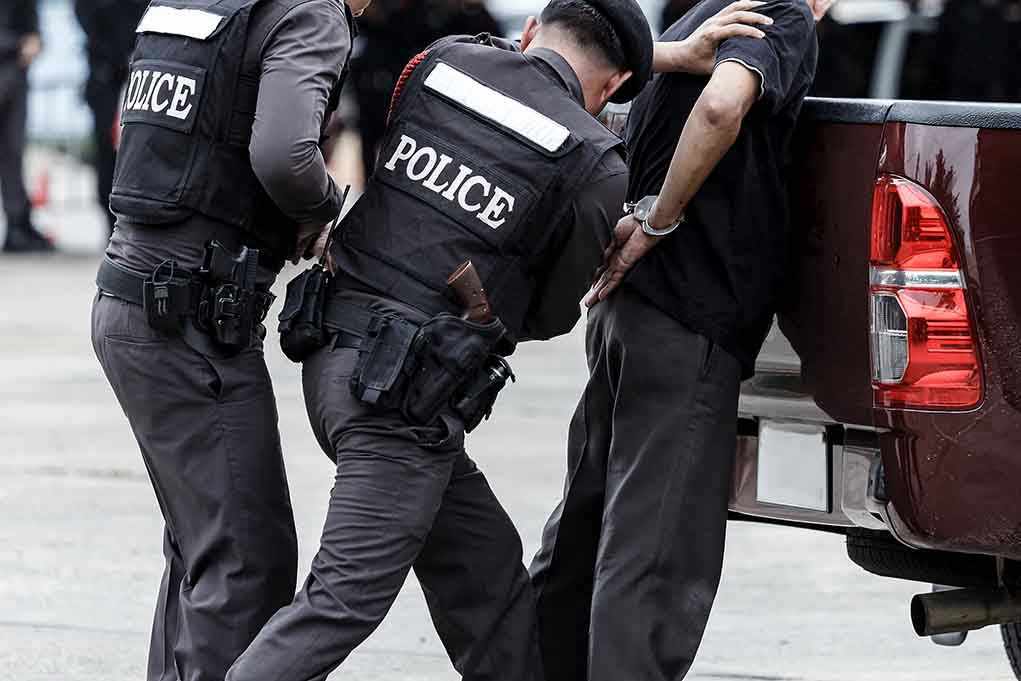
The arrest of nearly 1,400 criminal aliens in Houston has spurred the creation of a new Homeland Security Task Force, a decisive move that aims to protect American citizens and restore law and order in a region plagued by transnational crime.
At a Glance
- Nearly 1,400 criminal aliens were arrested in Houston in June 2025, underscoring the need for coordinated action.
- The Houston Homeland Security Task Force (HSTF) was officially launched on July 17, 2025.
- The task force is co-led by ICE and FBI, focusing on multi-agency investigations of transnational crimes.
- This initiative is rooted in a presidential executive order by President Trump to counter transnational criminal organizations.
The Formation of the Task Force
The creation of the Houston Homeland Security Task Force (HSTF) follows the arrest of nearly 1,400 criminal aliens in the Houston area in June 2025. This large-scale operation exposed the pervasive presence and activities of transnational criminal organizations (TCOs) in Southeast Texas. The task force is part of a broader U.S. government strategy to confront these threats, aligning with a presidential executive order issued by President Donald J. Trump. This order directed federal agencies to enhance efforts in protecting U.S. citizens from incursions by transnational criminals.
Houston’s strategic location—being a major metropolitan area near the U.S.-Mexico border and significant international trade routes—makes it a prime target for TCOs. These organizations thrive on drug trafficking, human smuggling, weapons trafficking, and other transnational crimes. The new task force, a regional component of the national Homeland Security Task Force, represents a permanently integrated, multi-agency approach to combat these sophisticated criminal networks.
Key Stakeholders and Their Roles
The Houston Homeland Security Task Force is co-led by ICE Homeland Security Investigations (HSI) Houston and FBI Houston. They bring federal investigative authority, intelligence capabilities, and operational leadership to the table. The task force also includes representatives from the DEA, ATF, U.S. Marshals Service, IRS CID, U.S. Postal Inspection Service, and CBP, each contributing specialized expertise. Together, they focus on a wide range of transnational crimes, including drug trafficking and money laundering.
State and local law enforcement play essential roles, providing local knowledge and presence, while U.S. Attorneys from the Southern and Eastern Districts of Texas handle the legal prosecution of cases generated by the task force. The Regional Executive Committee offers strategic counsel and oversight, ensuring the task force’s operations align with broader national security objectives.
Current Developments and Progress
The HSTF was officially announced on July 17, 2025, with headquarters in Houston and plans for a satellite office in Corpus Christi. The task force is in its initial operational phase, with personnel from multiple agencies already assigned and joint investigations underway. Intelligence-driven, multijurisdictional investigations are targeting a variety of transnational crimes, aiming to dismantle these criminal networks effectively.
HSI Houston Special Agent in Charge Chad Plantz has emphasized the necessity for a collaborative, whole-of-government approach to tackle the evolving threats posed by TCOs. FBI Houston Special Agent in Charge Douglas Williams highlighted the unprecedented level of cross-agency solidarity, aiming to present a united front against these criminal entities. Coordination with state and local partners remains ongoing, prioritizing the identification, investigation, and elimination of violent criminal organizations in Southeast Texas.
Implications and Future Outlook
In the short term, the task force’s activities will likely lead to an increased law enforcement presence in Houston and Southeast Texas, particularly targeting neighborhoods and sectors affected by TCOs. This could result in the disruption of criminal operations through arrests, asset seizures, and the dismantling of trafficking networks. However, it also raises community awareness and concern regarding both crime and law enforcement tactics.
Long-term implications could include a reduction in transnational crime rates if the task force successfully dismantles key organizations. The model could set a precedent for improved interagency cooperation and intelligence sharing, potentially being replicated in other regions facing similar threats. However, there may be challenges, such as legal and civil liberties issues related to aggressive enforcement tactics and immigration-related arrests. Ultimately, the task force’s effectiveness will depend on ongoing evaluation and transparency, with the potential to influence national law enforcement strategies significantly.




